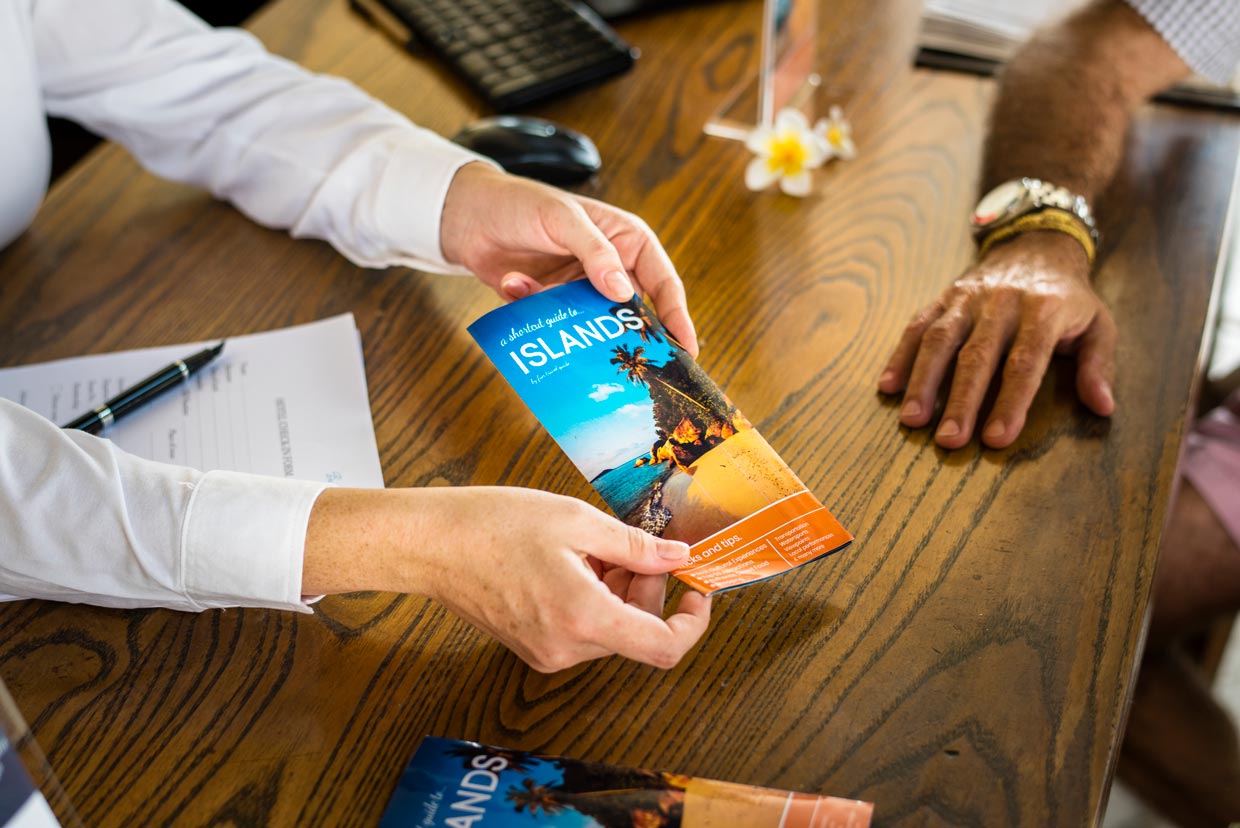Is Becoming a Tour Guide Right for You?
- Do you love adventures?
- Have you ever thought about traveling while making money out of it?
- Are you a good speaker and an overall outgoing person?
- Have you ever considered becoming a tour leader or a tour guide?
- Are you wondering what exactly they do?
If your answer is “yes” To any of those questions, this article can help you. Even if you are not interested in applying for these jobs, but you won’t like to know them better for any reason, you came to the right place. We will reveal everything essential you want to know about tour leaders and tour guides and how to start your career as one.
Tour Guide vs. Tour Leader: What’s the Difference?
You probably often hear the term “tour guide” alongside the tour leader, and you may wonder if both of them do the same thing or not. Well, their jobs are a little bit different, and this difference lies in the fact that tour guides do not necessarily “lead” a group to a place. They often assist a group or an individual client and share several kinds of information about several tourist attractions like historical, cultural, or religious places.
Another variation between these two jobs is that tour guides primarily work on short, local trips or visits and leave the group after the tour. They may only work in a specific museum, church, temple, business guide, or nature guide. The main point is that their workplace is, on the whole, more limited than tour leaders in most cases. There is a thin, blurry line between These careers, and they can combine easily. A tour leader has to more or less play the part of a tour guide on the trip, and a tour guide may become an outstanding tour leader with a bit of practice and training.
The Role of a Tour Leader: Responsibilities and Skills
A tour leader is someone with an energetic and explorer spirit. Tour leaders voyage with a group of tourists, mostly overseas, and stay with them until the end of the tour. If the tour leader is a complete foreigner like the rest of the tourists, they have to be great researchers and have in-depth knowledge about that place. The leader generally plans where the group should go and then when to go there. They should also answer the questions: why are they leading the tour there, and what is there to do? As you see, it’s evident that a tour leader should be good at scheduling. On top of designing the tour, they accompany them on the trip too.
Being a tour leader may be hard sometimes, but on the other hand, extremely fun. Based on the statistics, this job will probably be highly demanded in the future, as more and more people can afford tours. People are also more interested in exploring different cultures and nations due to the closeness that social media brings us.
Tour leaders should have effective communication and management skills. Meaning that they should have self-control, have a professional manner throughout the trip, and seem approachable. It should be effortless for the clients to speak with them. They need to know how to respond and talk to different types of people, use their body language, and lead and manage some more roles while facing the possible problems of the trip and solving them.

Essential Skills for a Successful Tour Guide
If you aspire to be a tour guide, you need to ensure you have a lot of energy while looking smart and confident enough for the tour to trust in you. You have to be fluent in both English and the destination’s language. Having a basic knowledge of some other well-known languages and good general education, and a tour-related degree is advantageous.
You can Contact a tourism training institution to take a course in tour leading or tour guide for a start. If you are willing to work with a particular agency, you may have to do interviews and attend specific training programs. We will talk about the tour guiding career later in more detail.
Before you start, clearly explain your abilities and talk about what they can expect from you. If you are a veteran tour leader or have any related experiences, clarify how your working way is. Then, in exchange, fully understand what the company proposes and what they lack, then discover what they represent and what they need you to do precisely. As a leader, it is evident that you cannot be misleading in any way. They should be outspoken, frank, and gentle on top of everything. Tour leaders must have a good understanding of the tour as a whole and avoid ignoring their possible individual needs. Good physical status and research skills are also a must. We will continue to explain why these requirements are needed, in detail and with examples.

Basic Requirements for Becoming a Tour Guide
Before the trip, tour leaders reserve and affirm all tour facets, like accommodations and meals. They must detail their plan for each day and should be good at managing time to catch up on all of them. Depending on the tour type, they may help with meal preparation or buy some supplies. They make sure the whole group is gathered and give needed explanations. Tour leaders patiently answer questions related to the trip and enjoy people’s company.
A tour guide can manage the budget; this means they may have to pay all tour bills and taxes. They need to spend money frugally to have money available for expenses. When the trip is going on right, they should keep it entertaining by providing engaging, updated information and commentaries on the places and sights visited. They can also organize fun activities and occasionally invite clients to make subgroups with each other to keep the tour’s vibe friendly, warm, and interactive.
In the hard times of the trip, tour leaders are obligated to encounter all sorts of situations. They need to be aware of the group’s safety and educate them about it. They should be adaptable and fully considerate the whole trip. For example, if the group contains older people, they must suggest activities that are not hard and dangerous for them to do. If a group member feels anxious and unsure about doing a particular thing or going to a certain somewhere due to personal reasons, tour leaders must be understanding, respectful, and comforting. They should not force them into something but come up with new ideas and suggestions. The priority is for everyone to have a pleasant and safe voyage.
In case of an emergency, a tour leader has to deal with sudden problems and know how to succor efficiently when needed. They need to know where they can get medical, legal, or any other type of assistance. Having former disaster management training can also be sorely helpful. In the end, After the tour, they complete an orderly, receipted, equivalent set of accounts. They prepare it for their company and report the critical issues to them too.
Conditions and Payment
aside from the skills and passion for this exciting job, they need the passport of the area or country they are applying for and a credible working visa. Tour leaders are in charge of the whole trip, which can last for days or weeks. It’s crucial for them to love their job; otherwise, it can get so frustrating. They should be comfortable being in different conditions, like hot or cold weather, populated places, quiet nature, luxurious hotels, or tents. They may even have to wear unique uniforms, all depending on the various tours.
If they wish to work as a driver tour leader, a driving license is needed. In that case, having a PVC license and former experience as a driver is desirable, and they should be over 25 years old for insurance objectives. Some tour leaders or managers are self-employed, but most are full or part-time and generally earn from $50 – $150 per day. Receiving tips from guests is common, too; tips are usually 5 to 20 percent of the tour’s cost. A tour leader’s monthly income can vary between 1000 to 10000 USD, depending on their work.

To Become a Good Tour Leader
knowledge Is the Base
Just like the tour leaders, the best tour guides are the ones who are completely respectful and understanding of different cultures. They can further their knowledge about Sociology, history, art, architecture, etc. over time, and slowly become total experts. As a tour guide, you always have to keep studying and keep your information updated. This job can be a real personal growth opportunity.
Compete to Survive
This job is usually very competitive because of how flexible and non-monotonous it is. You can start working at less-known places first and then compete with other professional guides. And if it’s possible, get to know your competitors better and see how you can continuously improve yourself.
Get Ready
Tour guides usually work from 8 to 12 hours a day and get 2 or 3 days off in between tours. It is necessary to be healthy and fit to work with high efficiency for long day trips. Another thing is dressing; Casual dressing is proper for them, not too formal and not too loose. Also, the climate and the weather must be considered.

Be a Local One
A tour leader may be local and guide a group of foreign tourists for days or even weeks in his/her hometown. In that case, the tour leader gathers them as they arrive and go along with them mostly until the end of the tour which may last days or weeks. Then he/she escorts the group to their flight, train, or whatever they’re using to get back home.
Qualify Yourself
Just like what I said for tour leaders, a related degree in subjects such as tourism or languages and a driver’s license can be quite beneficial in this competitive career.
Keep in Touch
As the tour leader, your research and contact where you want to work. Tour operators and tourism companies differ based on their country or city. You can even directly contact the hotels, museums, parks, etc. then, of course, you get examined or interviewed to see if you are fit for the job.
Find the Niche
There are so many websites to find a local tour guide. If you want private clients, you can register with them to find and contact you. The cost of a private tour guide is around 70 USD per hour. In return, they can set the tour’s pace, ask as many questions as they want without worrying about others’ interests, and have overall easier communication with the guide without interruptions.































